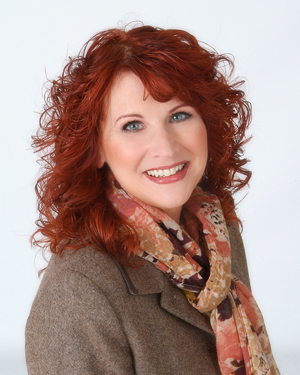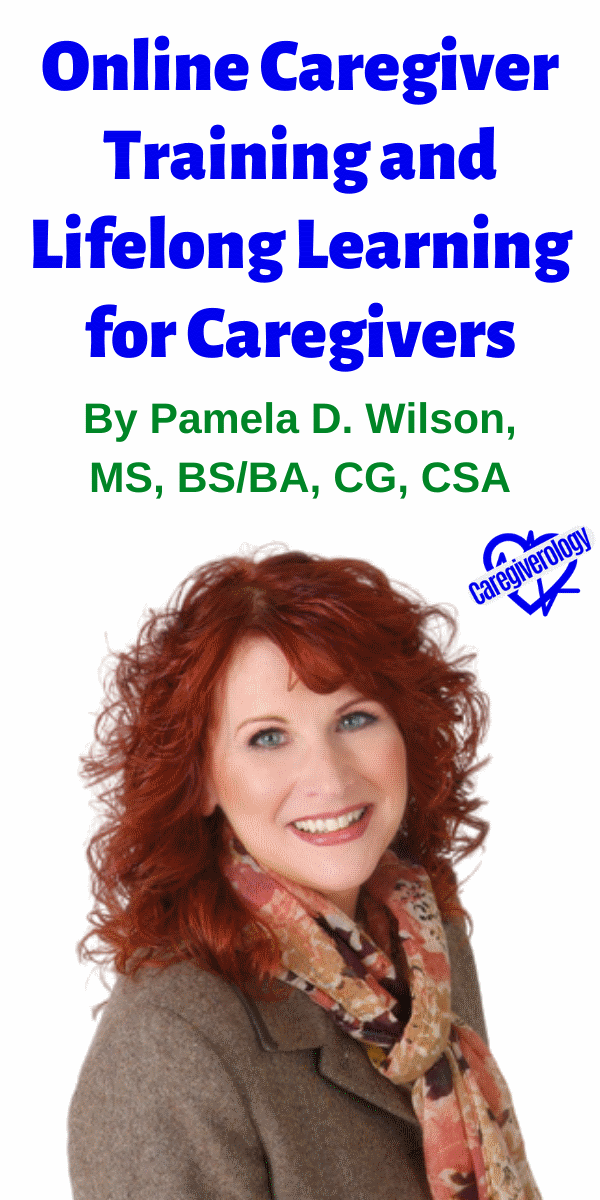Online Caregiver Training and Lifelong Learning for Caregivers
By Pamela D. Wilson, MS, BS/BA, CG, CSA
Online caregiver training makes it easy to find helpful information 24/7. If you are a family caregiver or a professional caregiver, you know that the list of what caregivers should know is never-ending. This aspect of caregiving keeps life interesting and provides opportunities for caregivers to learn from each other.
Why Saying no Training Resources Curious Questions Relationships Conflict Skills Writer
Why We Do What We Do
I was a family caregiver from a young age—my teens—when the word caregiver was less well known as it is today. Watching my mother struggle with heart disease and related conditions taught me about a life I didn’t want—a life of continually being sick and constantly worrying about my health.
Family caregivers worry about the health of elderly parents and loved ones as they witness declines in health. Professional caregivers become attached to patients and residents in care communities. For most of us, this helping aspect is why we do what we do. Helping others makes us feel good.
Before the death of my sister, both parents, and a brother, I worked in corporate positions in management and marketing positions. In high school, I had an interest in helping people that I didn’t pursue until after the death of half of my family when I transitioned to become a caregiving expert, advocate, and speaker.
Caregivers Have Difficulty Saying No
Another aspect of caregiving is that caregivers both family and professional have a difficult time saying no. Saying “yes” all the time can result in caregiver burnout and health issues in addition to compromised care for elderly parents, patients, and clients.
Burnout and exhaustion lead to closed minds and coping with getting through the day. If we’re honest, we’ve all had a day or two where we were working on our last nerve, and we crawled into bed exhausted. The question to ask is, how do we choose differently to avoid caregiver burnout and exhaustion? Setting boundaries, both personal and professional, is one way. Being open to learning is another way.
Online Caregiver Training
One choice to avoid caregiver burnout and exhaustion is to become a lifelong learner—and embrace online caregiver training. One concern that family caregivers offer when I suggest online training is an inability to find exactly what they’re looking for without spending hours searching.
Professional caregivers may have online caregiver training offered by their companies or professional associations. This type of training may relate to ongoing CEU credits needed to maintain designations.
Technical skills and Internet access may be another issue. I know CNAs and care staff who want online education, but they may not have a computer, so access is limited to programs on smartphones. In some areas, Internet speeds are too low to watch webinars or videos.
These complications require taking additional steps to access online caregiver training. Having a family member or a friend with a computer and high-speed Internet access is an option. Public libraries have computer stations for use. Workplaces may make computer stations accessible if enough employees make the request.
Caregiving Resources from Pamela D Wilson
The Internet makes learning easy. A lifelong interest in caregiver resulted in my caregiving website that serves as a resource for all caregivers. On the website, you will find my caregiving library, information, and podcasts from my radio program, my Caring for Aging Parents blog, my book The Caregiving Trap, and more information.
My YouTube Channel is another source of caregiver videos, as well as my Facebook page.
Website = https://www.pameladwilson.com
Caregiving Library = https://pameladwilson.com/caregiver-resources/
Radio program = https://www.Pameladwilson.com/caregiver-radio-programs-the-caring-generation
Caring for Aging Parents Blog = https://pameladwilson.com/caring-for-aging-parents-blog/
YouTube Channel = https://www.youtube.com/user/CareNavigator/featured
Facebook Page = https://business.facebook.com/pameladwilson.page/
The Caregiving Trap book = https://pameladwilson.com/caregiving-trap-book/
Being Curious and Open-Minded
How many people do we know who are close-minded? A suggestion is made, and we hear:
- That won’t work
- That may work for you but not me
- Been there, done that
- I don’t have time
- I’m too tired to try something that’s likely not to work
- I already know that
What if instead of responding automatically with an excuse—yes, an excuse—we trained our minds to be curious and open-minded?
There are several concerns with being curious and open-minded. We have to admit that we don’t know everything. A tendency may exist to react negatively to opinions that are different from ours instead of looking at a situation from a different perspective. Learning new information takes us out of our comfort zones. People lack the motivation to learn or try anything new. Being curious and open-minded involved retraining our minds to think positively instead of negatively.
What Questions Should You Ask?
When I trained my employees, and as I work with caregivers today from all walks of life, the question, I asked my employees when they posed a problem remains —what question should you be asking? I am amazed by the number of people who are afraid to ask questions.
If I taught my staff anything, it was that no one has all the answers—that we can choose to learn something new every day if we are open-minded. We can also choose how we respond. My motto of “reflect then react” helped my staff avoid what I like to call adversarial relationships—the idea of a foot in the mouth that burns bridges that harms work and family relationships.
I mandated the idea of teamwork, no gossip, and no triangulation that are destructive to all relationships. These mandates were management skills that I learned over time and through making mistakes.
Learning to ask the right questions is a skill. It’s the questions we don’t ask that result in problems. Never be embarrassed to ask questions or admit you don’t know something. Ask, ask, ask.
No Adversarial Relationships
My life as a professional caregiver was founded upon different platforms. One was that families didn’t get along—this resulted in my appointment as a guardian for elderly adults that included spouses, parents, and singles. Medical and financial power of attorney, the personal representative of the estate and trustee were my other fiduciary roles.
My second platform was as a care manager for individuals—the elderly or disabled—who were single or married and wanted care oversight. In another role, I provided support for working children who could not devote time to managing care for elderly parents.
If you are a professional caregiver, you may realize that caregiving is a small word—people within and outside of organizations talk. Everyone knows everyone. Burning a bridge or creating an adversarial relationship is likely to come back to the source—if that source is you. The ability to rise within organizations and to progress in the work world depends on building relationship skills.
In family relationships, similar situations exist. I worked with amazing families who got along and families with adult children who hated each other. Testifying in court at contested hearings on behalf of my clients when family members disagreed with my actions was a learning experience.
Creating positive relationships it the path toward getting the care we want for elderly parents, patients, or clients.
Learn to Manage Conflict
In the legal world, attorneys fight for their clients and win or lose. They shake hands afterward. Attorneys apologized to me after a court hearing for aggressive cross-examination when I was on the witness stand. I learned that this was a standard operating procedure for court hearings and knew it was mandatory to have my facts straight.
If you watch football or any sport on television, men and women compete. Men more than women shake hands and hug after winning or losing. Research confirms that women are more likely to hold grudges and not make up. Wonder why? The concept of teamwork is old school. Thousands of years ago, men were the hunter and gatherers. Men, whether they liked each other or not, put feelings aside to protect their clans, cities, and property. Women focused on care for the family.
Translate this today. Women are more likely than men to have close friends with whom they share everything. Men have friends, but they participate in sports, hang out in the garage working on the car, or have a beer. Why is this relevant? Accepting people who are different and who have different approaches is vital in caregiving and all relationships.
Men and women in the workplace and men and women in families who are involved in caregiving relationships benefit from being flexible, open-minded, and working with each other. Everyone can learn how to manage conflict positively.
Care situations focus on the care of an individual.
- Put your personal interests, biases, and judgments aside.
- Work toward the best care for a family member, patient, or client.
- Don’t take comments personally—everything isn’t always about you.
- If you made a mistake—apologize.
- Work together—rather than being divided. Don’t talk about anyone behind their back—voice concerns directly.
- Refuse to participate in gossip.
When you make the care about a loved one, client, or patient, conflict becomes easier to manage.
Hard Skills Versus Soft Skills
Caregivers succeed by using hard skills and soft skills. A hard skill might be learning how to bathe an elderly parent or a patient. A soft skill is relationship building that takes more effort to learn and finesse.
In caregiving, emotions run high. A long to-do list of never-ending tasks becomes exhausting. When we learn to work together as a team, successfully manage conflict, and avoid adversarial relationships, the roles and responsibilities of becoming a caregiver become easier. Being a lifelong learner eases the path.
Make online caregiver training and lifelong learning part of your life. I wish you all the success in your caregiving journey.

More About the Writer of this Article
Pamela D. Wilson, MS, BS/BA, CG, CSA is a national caregiving expert, advocate, and speaker. Twenty years of experience as a court-appointed guardian, power of attorney, and care manager serve as a platform to help organizations increase awareness and provide education programs to support family caregivers. Wilson hosts The Caring Generation® radio program, is the author of The Caregiving Trap, and is active through social media. Wilson supports family caregivers and aging adults interested in health, well-being, and caregiving. Wilson is a keynote speaker and educator for corporate human resources departments. She also provides education and programs for financial, insurance, legal, and consumer organizations.
®2020 Pamela D. Wilson, All Rights Reserved.
Mental Health and Support Articles
From Online Caregiver Training and Lifelong Learning for Caregivers to Home
Recent Articles
-
Common Truck Crash Injuries and Legal Remedies - Caregiverology
Jul 19, 25 10:49 AM
Known for its sun-drenched beaches, vibrant arts scene, and bustling maritime industry, Fort Lauderdale is a city that sees heavy traffic both on its roads and at its busy port. Unfortunately, with th… -
Why Expert Legal Help Matters After Serious Injury - Caregiverology
Jul 19, 25 10:35 AM
In Houston, over 67,600 car crashes occurred in 2023, resulting in 290 fatalities and 1,612 serious injuries. That’s roughly 185 accidents every day. -
How Life Care Planners Support Injury Recovery - Caregiverology
Jul 19, 25 10:18 AM
In Los Angeles, life care planners play a vital role in supporting injury recovery, especially for individuals facing catastrophic injuries such as traumatic brain injuries or spinal cord damage.





New! Comments
Have something to say about what you just read? Leave a comment in the box below.